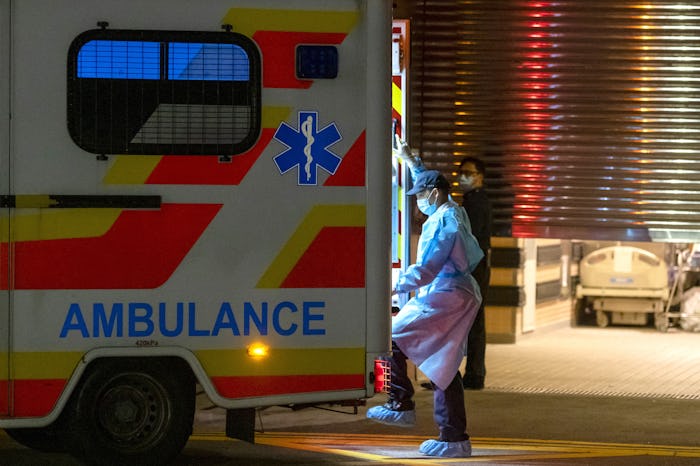News

What Are Coronaviruses? Here's What You Need To Know
Chances are you've heard a lot about "coronaviruses" in recent days. If you're wondering what coronaviruses are, you might want to read up... because the first case has been confirmed in the United States.
Scientists believe the current outbreak in Wuhan, China, was initially spread from animals to humans, per CNN. Remember SARS (severe acute respiratory syndrome)? SARS is a type of coronavirus, which is a viral infection that causes flu-like symptoms in its victims. University of Hong Kong virologist Leo Poon, who first discovered the virus, explained to CNN: "What we know is it causes pneumonia and then doesn't respond to antibiotic treatment, which is not surprising, but then in terms of mortality, SARS kills 10% of the individuals." Patients who have contracted the coronavirus will suffer flu-like symptoms such as runny nose, headache, fever, cough, and sore throat, according to the Centers for Disease Control and Prevention (CDC). It tends to hit people with weakened immune systems, older adults, and children with more force. Severe symptoms of the coronavirus unfortunately can include kidney failure, pneumonia, a dangerously high fever, and potentially death.
While the coronavirus has been making hundreds sick in Asia and unfortunately killed nine people, as per the Wall Street Journal, only one case has yet to be reported in the continental United States. The CDC confirmed on Tuesday that a person who recently traveled to Wuhan, China returned to the state of Washington carrying the virus. Many of the cases can be traced back to a large seafood and animal market in China, which has lead scientists to believe the coronavirus was passed from animal to human. Several countries have developed screening methods for incoming travelers at airports as a result of this virus, including major airports in the United States like LAX in Los Angeles, O'Hare in Chicago, San Francisco International, New York JFK, and Hartsfield-Jackson International in Atlanta, reported USA Today. The virus is transmitted by touching infected objects or being close to an infected person when they cough or sneeze.
While most people have experienced some mild version of the coronavirus within their lifetime, it's a good idea to practice safety first, especially with children. Washing your hands often with soap and water for at least 20 seconds can help, as well as avoiding close contact wih people who are sick. There is no vaccine for the coronavirus according to the CDC, so people need to be extra cautious until the potential for outbreak is contained.
If you think you’re showing symptoms of coronavirus, which include fever, shortness of breath, and cough, call your doctor before going to get tested. If you’re anxious about the virus’s spread in your community, visit the CDC for up-to-date information and resources, or seek out mental health support. You can find all of Romper’s parents + coronavirus coverage here, and Bustle’s constantly updated, general “what to know about coronavirus” here.